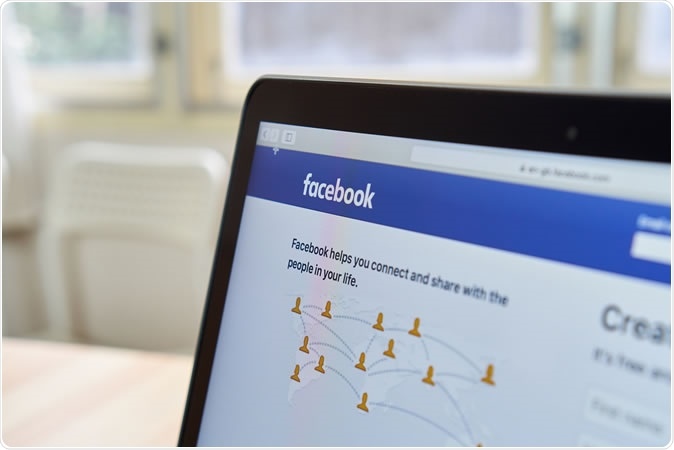
Image Credit: Sitthiphong / Shutterstock
Following the FB initiative to counter vaccine misinformation and its blood donation feature to boost the connectivity between blood donors, individuals in need of blood donation, and facilities to serve blood donors, this is a potentially useful weapon in the fight to detect chronic treatable diseases early.
However, FB’s Chief Privacy Officer Erin Egan goes out of her way to assure us of the absolute privacy of any information collected, as well as of the minimal amount of data collected to make sure the tool works well and can be enhanced over time. The tool is available only in the US at present.
The tool is meant to remind people about tests and vaccines, such as heart health assessments and cancer screenings. These, if regularly done, can help avoid a lot of cancer- and heart disease-associated sickness and death. And all it needs to know about you at the beginning is your age and sex – which you can enter separately into the tool, if the details on your public profile aren’t accurate.
Once this basic data is available, the tool will tell you what should be done and what avenues are available. It will even tell you what federally qualified facilities are near you, if your mobile’s location tracker is on. These are meant to serve users without a fee or on a sliding scale depending on the user’s capacity. If not, it will make a recommendation based on your current location. This will help users know more about what they want to do and discuss it with their primary physician. Seasonally, it will also show where flu shots can also be taken.
Cardiologist Freddy Abnousi. who heads Facebook’s healthcare research wing, says, “We are looking at the number-one and number-two killers in America, which are heart disease and cancer, and we're also looking at seasonal illness, particularly flu in this case.”
This simple tool is not based on anything the app knows about the individual user but on broad knowledge of what health conditions commonly affect people of that sex and age group. They just add up a lot of officially available health information with a date reminder. This is low-tech, compared to automated online pharmacies and electronic health records. However, with giants like the American Cancer Society, American College of Cardiology, and the American Heart Association vetting it, the information is reliable and relevant – a big pro for the tool.
Privacy matters
Egan says that no Preventive Health activity will be seen by anybody else, and any data provided by the user will be stored securely. Only the group which actually builds and maintains the tool at FB will be even able to have access to this data. It will be kept out of reach of third parties including health insurance or healthcare organizations. This ensures that it won’t affect the user’s eligibility for insurance.
Moreover, she says, users will be able to control the use of the tool according to their own needs and wishes. While the tool can be user-configured to provide reminders of future checkup dates and later to mark them as complete, the results of tests and checkups will not be accessible to the FB team. Sharing the tool via Messenger or News Feed with others in your friends or family circle will also not breach your confidentiality.
The location services setting on the user’s mobile will help the tool to display Federally Qualified Health Centers in the area if available. If these services are turned off, the tool will simply show a location based on the user’s current city.
The big question is whether these promises ring true to users, given that just last year a security breach left information from almost 50 million users open to hackers. However, the situation with the Preventive Health tool is quite different, given that practically nobody has access to test results or other health information from users. Instead, the users keep their information to themselves
Advertising and tracking
While the tool will suggest checkups for the user according to age and sex, in keeping with health-organization suggested guidelines, the age and sex can be edited by the user if the details on the FB profile page are different.
The tool will ‘remember’ reminder dates, or completion of a test or checkup. However, this is used only to help the user keep track of dates and scheduled tests. Activity around specific buttons and similar activity expressing interest in certain aspects of the tool will be collected in order to improve the way it works in future.
Personal data collected by the tool will not guide advertising activity, says Egan. She says categorically, “That includes things like setting a reminder for a test, marking it as done or searching for a healthcare location.” Ads, as always, will be guided by the user’s general activity. If the user likes a health facility’s web page, for instance, or looks at a site linked to the Preventive Health page, that will change the way FB presents ads, of course.
Commendation
American Cancer Society’s Richard Wender hopes the tool will boost early screening rates for cancer and improve public health, overall. It is established that early screening reduces the risk of death from several cancers, including cervical, colorectal, lung and breast. But screening rates are lower than could be wished. The big question is, will users maximize its potential or will they choose to turn it off – and possibly compromise their own health? If it is well received, it could be offered to other countries as well and could be expanded to cover more areas of public health. The first step is evaluating how well FB users take to it and how much benefit it really confers.